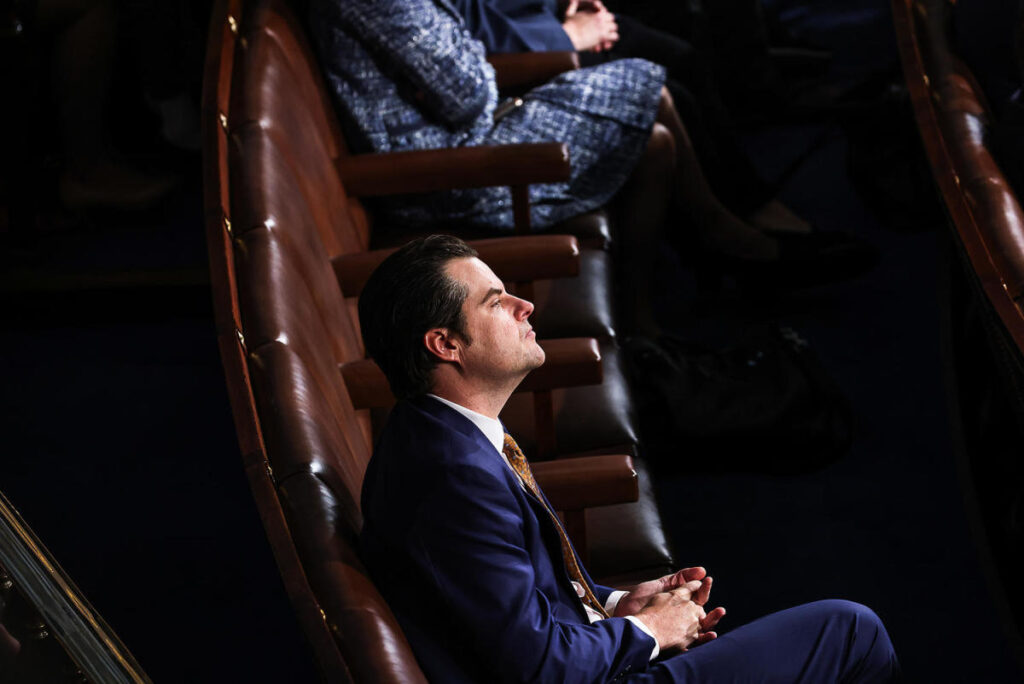In the wake of Matt Gaetz’s recent resignation from the House of Representatives and his decision to withdraw from consideration for a Cabinet position, uncertainties regarding his political future abound. Gaetz, who had been re-elected to represent his Florida district in the upcoming 119th Congress, has left many questioning whether he could return to his Congressional seat. His resignation, however, means that he officially ended his role in the current 118th Congress and, according to established parliamentary precedents, he cannot reclaim his position for the remaining weeks of this session.
The possibility of Gaetz taking his oath of office in the 119th Congress is complicated by his explicit statements to the contrary. In his resignation letter, Gaetz clearly indicated that he did “not intend to take the oath of office for the same office in the 119th Congress.” This declaration was also communicated to Florida’s Governor Ron DeSantis, as required by the constitutional procedure for filling House vacancies. Until a special election is organized, Gaetz’s seat remains officially vacant. While the House Speaker expressed hope that an election would be conducted promptly, there remains significant ambiguity regarding whether Gaetz might reverse his decision about taking the oath once the new Congress begins in January.
Should Gaetz decide to take his seat in the new Congress, the implications for the ongoing Ethics Committee investigation into his conduct could be significant. The Ethics Committee has the authority to continue investigations and release reports even if an individual is no longer a member. Before Gaetz’s withdrawal from consideration for Attorney General, Speaker Johnson indicated a desire to keep any report on the investigation from being released. Conversely, the committee’s chair has stated that there was no unanimous agreement among members regarding the release of the report, leaving the door open for potential future developments.
If Gaetz does not return to Congress, the future of the Ethics Committee inquiry remains uncertain. The committee chair remarked that Gaetz’s resignation should naturally conclude any discussions regarding further action on the committee’s part. However, there are dissenting voices, particularly from Democratic representatives who are calling for the committee to continue its work. Representative Sean Casten introduced a resolution aimed at compelling the committee to release its findings, stating that the issue should be addressed following the Thanksgiving recess.
The procedural intricacies surrounding Gaetz’s situation can be confusing, as the House rules stipulate that a member-elect may decline to take the oath of office. There is little historical precedent for a member-elect declaring their intention not to assume office, then later reversing that perspective. Compounding the matter is the recent post made by Gaetz’s wife, suggesting a sentiment of closure, further fueling speculation about his political ambitions and possible return to Congress.
In summary, although Gaetz faces hurdles owing to his resignation and subsequent statements about not seeking re-election in the 119th Congress, the evolving political landscape may yet allow for a return. Outcomes regarding the Ethics Committee’s investigations, whether he chooses to take the oath, and the decisions of the leadership will ultimately shape not only Gaetz’s political future but also the ongoing governance of the House as it prepares for the new session. The drama surrounding Gaetz’s situation serves as a reminder of the fluid nature of politics and the continued scrutiny members of Congress face regarding their conduct and integrity.

